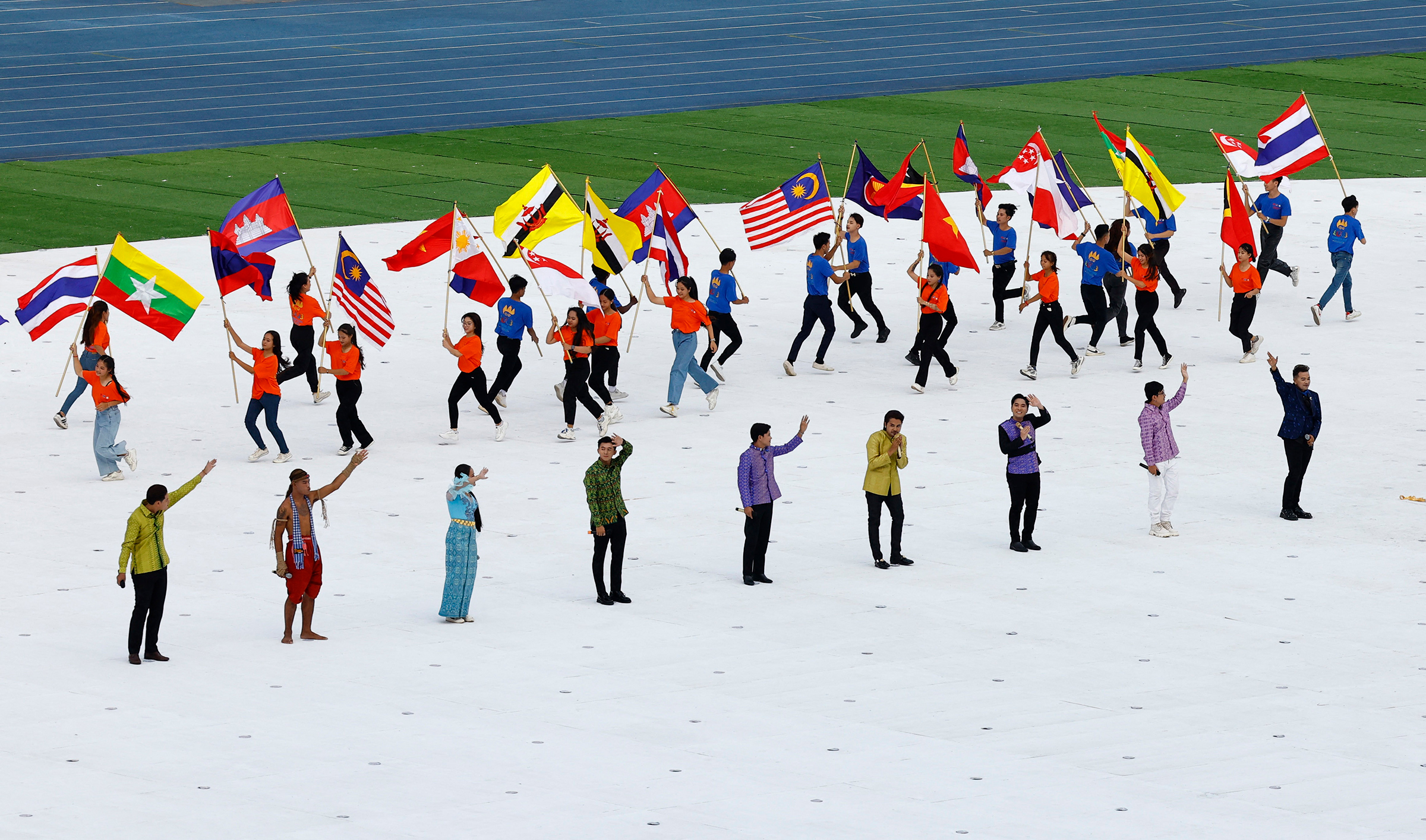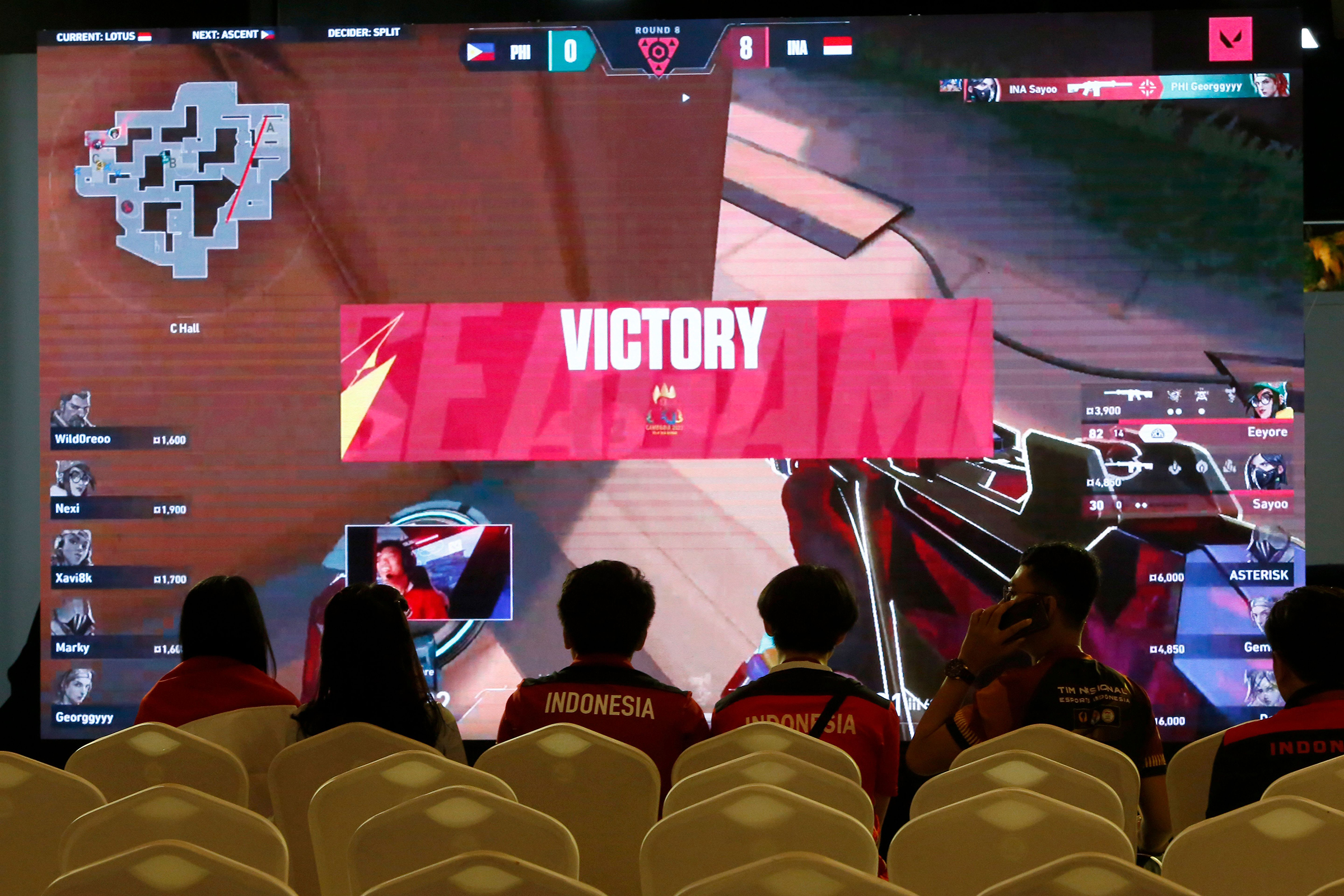
When Luang Sukhum Nayapradit, then vice-president of the National Olympic Committee of Thailand, first pitched the idea of a Southeast Asian (SEA) Games in 1958, he envisioned it as an opportunity both to raise athletic standards and increase cooperation in the region.
But the biennial sporting event—which just concluded its 32nd iteration, staged for the first time in Cambodia this year—has often been overshadowed by controversy, ineptitude, and nationalistic infighting: from repeated allegations of match-fixing to infrastructural failures (that at times have turned deadly) to a lack of standards that have led to the event being written off as a “gold-medal mine,” for a group of nations that are otherwise uncompetitive in global events like the Olympics or soccer’s World Cup.
This year was no exception. Cambodia kicked off the squabbling months before the events began by deciding to drop muay thai, Thailand’s national sport that has been part of the SEA Games since 2005, from the roster of events and replace it with kun khmer, a nearly identical kickboxing competition but of Cambodian rather than Thai origin. Thailand ultimately decided to boycott the event.
Still, over the last two weeks in Phnom Penh, there were also notable moments of inspiration and achievement amidst the usual controversies. Here are some of the highlights and lowlights from the 2023 SEA Games.
An opening ceremony flag faux pas
The Games started on May 5 with a jubilant opening ceremony that featured the parading of the flags of the 11 competing Southeast Asian states as well as the ASEAN bloc flag. It was a spectacular performance, complete with traditional dancers and colorful floats. Except, the flags of Indonesia, Vietnam, and Myanmar were displayed upside down. Incensed viewers online inundated the SEA Games social media pages with complaints and politicians from the affected countries complained, forcing an official apology from the organizers.
It’s not the first time for such a banner blunder at the SEA Games: the official booklet when Malaysia hosted in 2017 also flipped Indonesia’s flag, showing the colors of Poland instead, before a corrected version was distributed in its place.
Cambodian last-place runner celebrated
The SEA Games also had at least one viral heartwarming moment. Cambodian runner Bou Samnang, who came last in the women’s 5k event, became an internet sensation after she persevered to the finish line through a downpour of rain that began as most of the field had already completed the race. Vietnam’s Thi Oanh, who ranked first, finished six minutes ahead of Samnang, while the penultimate runner was 90 seconds ahead.
The 20-year-old runner pushed on, inspiring onlookers with her teary-eyed determination. Samnang, who has been suffering from anemia and has said she didn’t feel well on the race day, told media she wanted to see it through for her country and the Cambodians she represents: “I couldn’t just stop the race even though I had the right to.”
Fights and flip-flops over a flipped fight result
In one weight division final on May 10 for women’s pencak silat, an Indonesian martial art competition, Indonesia’s Safira Dwi Meilani was leading Vietnam’s Nguyen Hoang Hong An by 61-43 as the clock ticked down the final seconds. There was no time for Hong An to stage a comeback on points, but with 18 seconds remaining she executed a hand lock that forced Safira to tap out. The referee awarded Hong An the gold medal, but immediately the Indonesian team disputed the victory, and an altercation between the two coaching staffs ensued, which had to be broken up by security officials. The referee then reversed his decision and awarded the gold to Safira, and Vietnam’s team filed a complaint. The final outcome: a joint gold for Indonesia and Vietnam.
Singapore accused of ‘digital doping’

Several esports titles were played as medal events at the 2023 SEA Games, including the tactical first-person shooter VALORANT, for which Singapore and Indonesia made the finals on May 10. But halfway through the match, the game was abruptly paused for hours, before the stream ended without conclusion. During the timeout, Indonesia accused Singapore of effectively ‘digital doping’: exploiting an in-game bug that allegedly gave them an illegitimate advantage. Indonesia eventually decided to forfeit the competition citing “unfair conditions.” But organizers decided to award both Singapore and Indonesia a joint gold medal, given the controversial ending. Team Singapore’s Tidus Goh, also known as STYRON, decried on Twitter that his team had read the rules and followed them, and yet they were still denounced as cheaters: “What a way to take away every honor the medal carries.”
Finishing in the dark and falling on the courts
Faulty or subpar sporting infrastructure have been a recurrent theme in past SEA Games. In Cambodia, a video went viral showing the finishers of one track event at a podium lit by what appears to be car headlights. The awarding of the men’s 20-km fast-walk event near the Angkor Wat on May 6 was shrouded in darkness reportedly because the daytime race had been postponed to the evening due to weather. Gold winner Hendro Yap of Indonesia told Indonesian news site Kompas.com that some reporters had to even shine their own flashlights.
It wasn’t the only facilities issue this year. Coaches from the Philippines and Singapore also complained that the linoleum tiling of the multi-purpose halls where basketball was played caused their athletes—accustomed to playing on polished wood—to get injured, and that a lack of ventilation caused extra slippage from sweat on the floor.
Redemption for Indonesian soccer with first gold in 32 years
Following a stadium stampede that killed hundreds in October 2022 and a political fiasco just several weeks ago that led FIFA to pull the 2023 Under-20 World Cup tournament out of the country, Indonesia has finally restored some of its nation’s soccer pride after beating Thailand in a dramatic SEA Games final on May 16.
The match was heated and had its own fair share of controversy—including four players being sent off and two brawls, one of which was triggered after Indonesian players mistook a last-minute whistle by the referee to mean the end of the game, when it actually marked a foul. The Indonesian bench prematurely rushed the field to celebrate, but Thailand ended up scoring a tying goal off the free kick to send the match to extra time. Ultimately, Indonesia won 5-2, marking the country’s first gold medal in the sport since 1991.
More Must-Reads from TIME
- Cybersecurity Experts Are Sounding the Alarm on DOGE
- Meet the 2025 Women of the Year
- The Harsh Truth About Disability Inclusion
- Why Do More Young Adults Have Cancer?
- Colman Domingo Leads With Radical Love
- How to Get Better at Doing Things Alone
- Michelle Zauner Stares Down the Darkness
Contact us at letters@time.com



